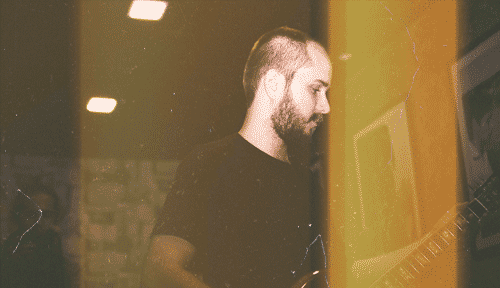Copyright law is often a murky, gray area of the courtroom, and in this age of remix, remake, mashup and homage, it’s becoming even more difficult to detect an original artist’s fingerprints on a finished product. Of course, that hasn’t prevented artists and designers from fighting back against the sometimes careless, capitalist machine. Have a look at these recent cases of copyright infringement, absorb the lessons, and you may avoid a needless, costly lawsuit of your own some day.
Aholsniffsglue vs. American Eagle Outfitters
In 2014, Miami street artist David Anasagasti—better known as Aholsniffsglue—took on American Eagle Outfitters for using his signature droopy eye design in marketing campaigns across the globe. The copyright infringement started when AEO put Ahol’s work in the background of an ad, with a model photographed holding a spray paint can, as if he were the artist. But it didn’t end there. A few months later, to promote a new store opening in Colombia, AEO allegedly invited local street artists to copy Ahol’s design and plaster the American Eagle logo on top. The case was settled out of court, with the $3 billion retail giant forced to pay an undisclosed sum.


The Beastie Boys vs. GoldieBlox
GoldieBlox, a company that makes engineering and building toys for girls, got into a legal dust-up with the Beastie Boys over a viral video that referenced their 1987 song, “Girls.” In the original video, three girls build a Rube Goldberg machine (like this one) while singing the Beastie Boys hit with altered lyrics: “Girls to build a spaceship / Girls to code the new app / Girls to grow up knowing / That they can engineer that.” The group claimed it was copyright infringement; the toy company said it was parody, and that as such, it was fair use. After a suit and countersuit, the parties settled in 2014: Goldieblox issued an apology, and as per the band’s request, donated $1 million to a charity supporting STEM education for girls.

Katie Thierjung vs. Marc Jacobs
In 2017, artist Katie Thierjung accused Marc Jacobs of copying several of her pin designs, including a parrot, a highball cocktail, and a margarita glass, sending the company a cease and desist letter. But, according to Artsy, not only did Marc Jacobs continue to sell the stolen designs, the company “proceeded to create numerous additional” infringing products. This instance was a part of a greater trend of major fashion companies stealing the designs of independent artists, which was cleverly coined “pinfringement,” by an earlier suit of 11 artists against women’s clothing retailer Francesca’s earlier in 2017.
In October of 2018, a judge tossed out the artist’s claim, ruling in favor of Jacobs. The decision came down to a distinction between trademark and copyright management: The Jacobs pins include the brand name (“Marc Jacobs”) on them—but that alone said nothing about who owned the copyright. While Jacobs may have won this round, the fight’s not over. Katie Theirjung, Laser Kitten, and Wildflower and Co. have also accused Marc Jacobs of copyright infringement, which has yet to be settled.

Bottom right square: Katie Thierjung’s original pins



